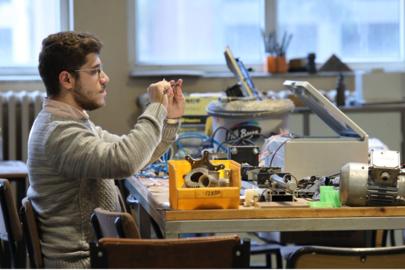The European Union (EU) funds a four-year, 8 million euro regional programme with SPARK, an international non-governmental organisation, to help reshape business communities in the Southern Neighbourhood towards a more inclusive, sustainable and tech-driven future.
As the MENA region needs to adapt to complex environmental issues and rapidly changing social and economic behaviour, young entrepreneurs are taking the lead to transition into a greener, ecological and sustainable future.
According to research published in 2018, “results only come from sustainable entrepreneurship that integrates all three pillars of sustainable development: economic, environmental and social”. Entrepreneurs in partner countries are becoming more and more tech-oriented, social and environmentally aware. International communities are responding with more tailored support for these initiatives that are proving to be impactful and successful year after year.
The EU is one of the leading players in this global change. With an active presence worldwide, especially in the Middle East and North Africa, the European Union is building on the previous projects’ successes that promote greener, socially responsible and tech-driven futures for young entrepreneurs.
SPARK, alongside two of its regional partners, IACE (Tunisia) and Ruwwad (Jordan), is funded by the EU to design, implement and improve start-up ecosystems in Palestine, Jordan, Lebanon and Tunisia. Led by refugees and local communities, with a focus on women and vulnerable youth, businesses will be supported to grow and create sustainable, decent jobs for the region’s economic prosperity. The project will accelerate the current development trend towards scaling and equipping ecosystems with the means to replicate their best practices.
Yannick du Pont, founder and CEO of SPARK: “With an important budget and a long-term duration, the project will provide comprehensive support aimed at strengthening competitiveness and faster growth, as well as the ability of local SMEs to generate more and better employment. It aims at influencing and improving the current business environment, making it more conducive to an innovative and knowledge-based economy.”
Henrike Trautmann, Acting Director for the Southern Neighbourhood and Turkey at DG NEAR noted: “This is important regional initiative will contribute to the creation of sustainable jobs in the Southern Neighbourhood. Our objective will be achieved notably through capacity building of the ecosystem players, exchange of expertise and cooperation with European clusters and networks, paving the way for a greener and more inclusive future.”

